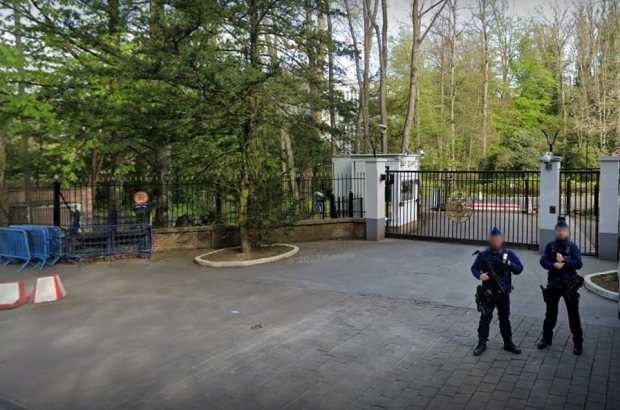- Daily & Weekly newsletters
- Buy & download The Bulletin
- Comment on our articles
Spying poses increasing threat to Belgian security, new report reveals
Spying and counter-intelligence have replaced Jihadist-inspired terrorism as the biggest challenges to Belgium's national security, a new report has found.
However, as the 16 October 2023 shootings in Brussels show, and this week's foiled plot to attack the Botanique concert hall in Brussels, terrorism threats have not gone away.
The latest reports reveals that in 2023 there were new actors in espionage. In addition to the classic protagonists - China and Russia - Belgium’s state security service (VSSE) said it must now face interference from states “not necessarily hostile to Belgium”.
However, such countries nevertheless carry out secret intelligence activities to promote their own interests. These players are developing clandestine activities in Belgium to promote their interests.
One example is the Qatargate scandal, involving Belgian Socialist MEPs Maria Arena and Marc Tarabella.
“In short, espionage and counter-espionage are back from never quite being gone,” said Francisca Bostyn, the VSSE's interim administrator-general.
The report also referred to tactics adopted by China including working with informal agents with no official ties to the intelligence services, such as the recruitment of right-wing Vlaams Belang politician Frank Creyelman to influence his brother Steven.
Hostile information services have also had to rethink their approach, the VSSE said. Many intelligence activities, for example from China, are led directly from abroad.
To avoid risks, agents resort to cyber activities, the use of covers or the recruitment of informal agents who are not taking up spying as a career.
In this way, if secret activities are spotted, the information service or state overseeing operations from a distance can more easily deny any involvement.
In the last two years, the VSSE has noted a further increase in terrorist threat cases. But instead of attacks from centralised organisations, the trend is for “lone wolves” and unstructured networks that thrive on closed channels, the service said.
“The attack of 16 October 2023, perpetrated in Belgium against two Swedish nationals, is a sad illustration of this,” the report explains.
The intelligence report details other new challenges. The Russia-Ukraine conflict raised awareness of the risks that could arise from Belgium’s “excessive dependence on fickle foreign players”. This pushed the VSSE to collaborate in screening foreign direct investments in critical sectors.
The fight against excesses of organised crime, increasingly corrupting the country’s social structures, also needs help from other sources. “A country cannot manage phenomena such as extremism, terrorism, espionage and interference on its own,” Bostyn said.
“The VSSE almost no longer conducts intelligence investigations without ‘pieces of puzzle’ from other services, increasingly often from foreign services.
“This is because we are constantly consolidating our internal network. We are investing in the use of liaison officers in multilateral institutions in Belgium and abroad in cooperation with partners such as the General Intelligence and Security Service (GISS) - the Belgian military intelligence service - or the foreign ministry.”
The agency is also monitoring the threat from right-wing extremists and has warned against accelerationism – a strategy assuming that racial conflict will take place and that it must be accelerated through terrorist violence.
More and more minors have appeared in intelligence files like these, in some cases as young as 15, as was the case in this week's arrests in connection with a planned attack on a Brussels concert hall.
The VSSE, in an “increasingly intangible society” has also introduced a new investigative model to suit the new IT environment.
“This model and the digital transformation of the VSSE is very important,” said Belgium’s justice minister Paul Van Tigchelt. “IT reform represents a unique opportunity for VSSE to exploit large volumes of information.
“Indeed, a modern society needs a modern intelligence service,” Tigchelt continued. “A strong VSSE is not a luxury, but a necessity, for the resilience of our democratic rule of law.”
The VSSE’s increased workload is reflected in the rising number of employees at State Security – up to 1,000 in spring 2024, with training a big challenge, along with the new methods of treating information and information tools.
“Change is a difficult process, of course, but it is also an imperative,” Bostyn argued. “If an intelligence service does not evolve, one thing is clear: ultimately it will lose all relevance for society.”
Photo: Federal police stand guard outside Russia's embassy in Brussels














